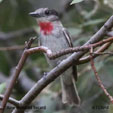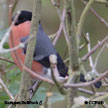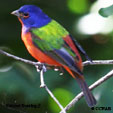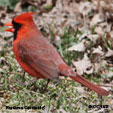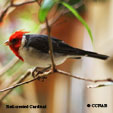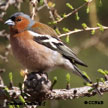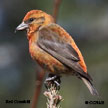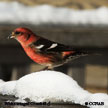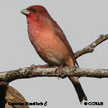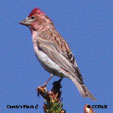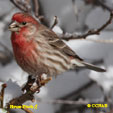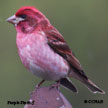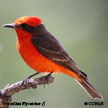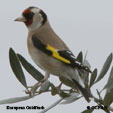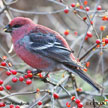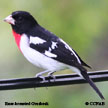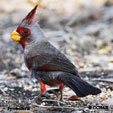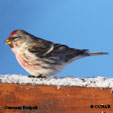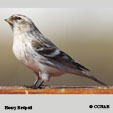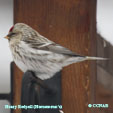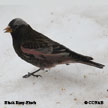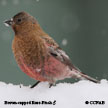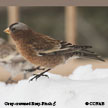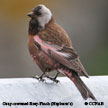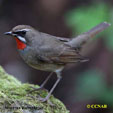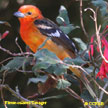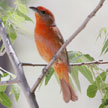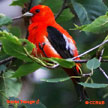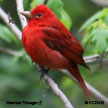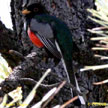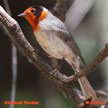North American Bird Search Box
This search box can be used to find bird species using bird's english, french or latin name, or to identify bird by its 4 letter Alpha Code
Field Guide for all the Birds of North America
Red Birds
Oiseaux rouges
Lives, Habitats and Pictures of Red-coloured Birds
Information, images and range maps on over 1,000 birds of North America, including sub-species, vagrants, introduced birds and possibilities
Red birds in North America are found in many different bird groups. Some are found in dry open areas, such as the Vermilion Flycatcher and the Pyrrhuloxia, whose habitat are sparse and dry.
Others such as the Purple Finch, Scarlet Tanager and the Cassin's Finch, favour the mixed forests as their homes. Then, there are the northern birds, such as the Pine Grosbeak, Red Crossbill and White-winged Crossbill.
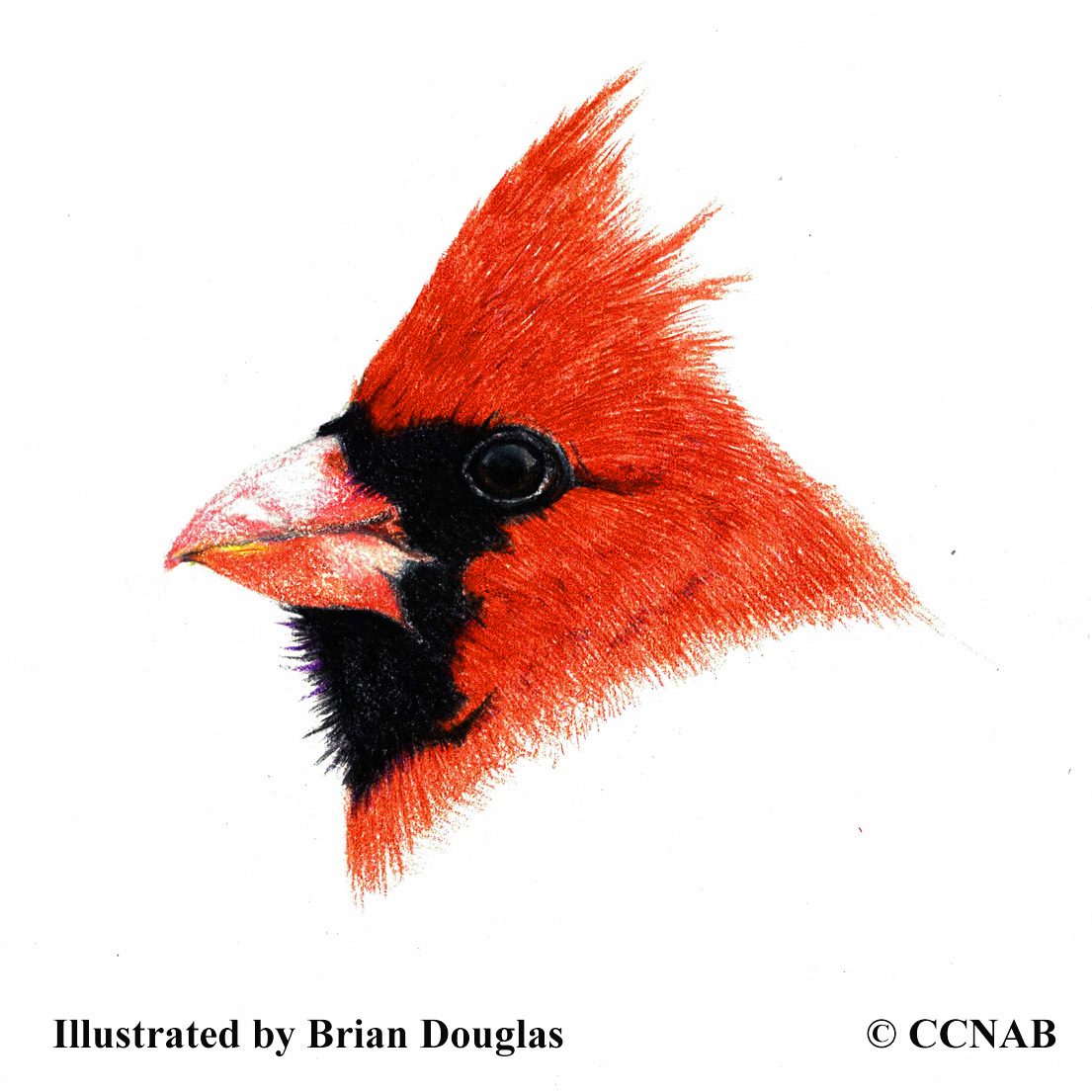
Below is a list of red coloured birds, some mostly red coloured. Some of these birds are common while others are sought after. It is interesting to note that most of the red birds seen are males species of that bird type, whereas the females of the same species may be an orange, brown, green or other.
For example, the Northern Cardinal, whose bright red plumage is recognized by almost anyone who sees it and whose mate has a soft brown plumage. The reasons for this is to protect the female birds, while they are sitting on their nest and rearing their young.
Here is a list red birds seen in North America, native and vagrant birds are included;
North American Birds Videos
- Click here - Male Northern Cardinal
Reference to Other Bird Site:
ABA - American Birding Association This site represents an organization that maintains official records of all birds species that have been proven to have been seen inside the perimeters of the North American Continent and the surrounding bodies of water. Regular revised versions are posted to keep the bird list current at all times. This is the list used by all serious birders over their lifetime. You may be aware of the movie called the "Big Year". It was with this list that all the competing birders used in an attempt to set a new record as to how many bird species that could be seen by an individual birder in one calendar year.
